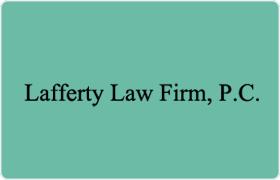 Greenbrier Reorganization Lawyers, Tennessee
Greenbrier Reorganization Lawyers, Tennessee
Sponsored Law Firm
-
 x
x

Click For More Info:
-
Lafferty Law Firm, P.C.
1321 Murfreesboro Pike Suite 521 Nashville, TN 37217» view mapBankruptcy & Debt Over 30 Years Of Experience
Susan S. Lafferty is a CPA and Attorney who enjoys helping people with financial problems. She is located in Nashville, TN where she has lived for over 30 years.
800-936-9071
Lawyers
1-10 of 10 matches
Reorganization, Credit & Debt, Bankruptcy, Bankruptcy & Debt
Bankruptcy & Debt, Car Accident, Criminal, Reorganization
Litigation, Natural Resources, Administrative Law, Business, Reorganization
Litigation, Wills & Probate, Reorganization, Credit & Debt
Litigation, Wills & Probate, Insurance, Reorganization
Construction, Entertainment, Insurance, Reorganization



 Susan Lafferty Nashville, TN
Susan Lafferty Nashville, TN Practice AreasExpertise
Practice AreasExpertise